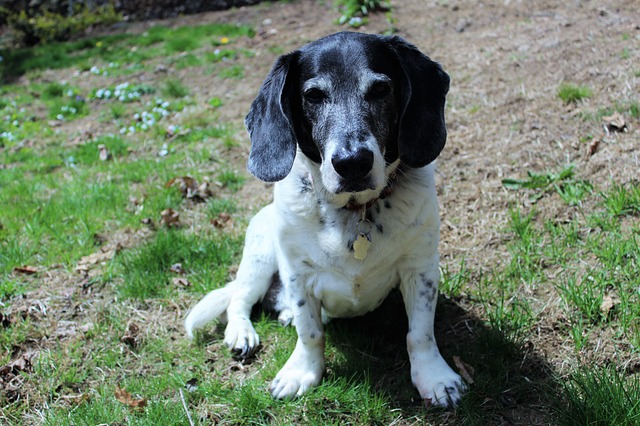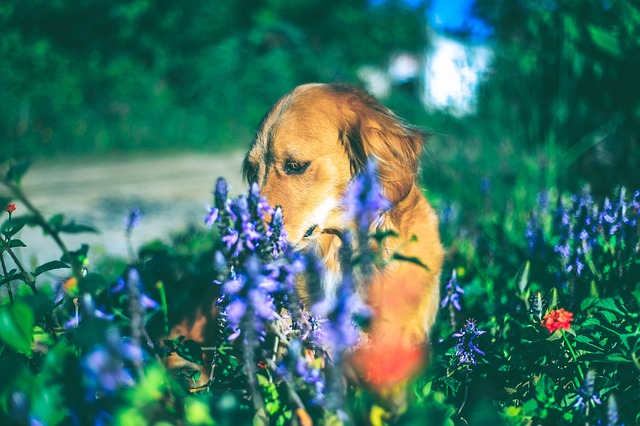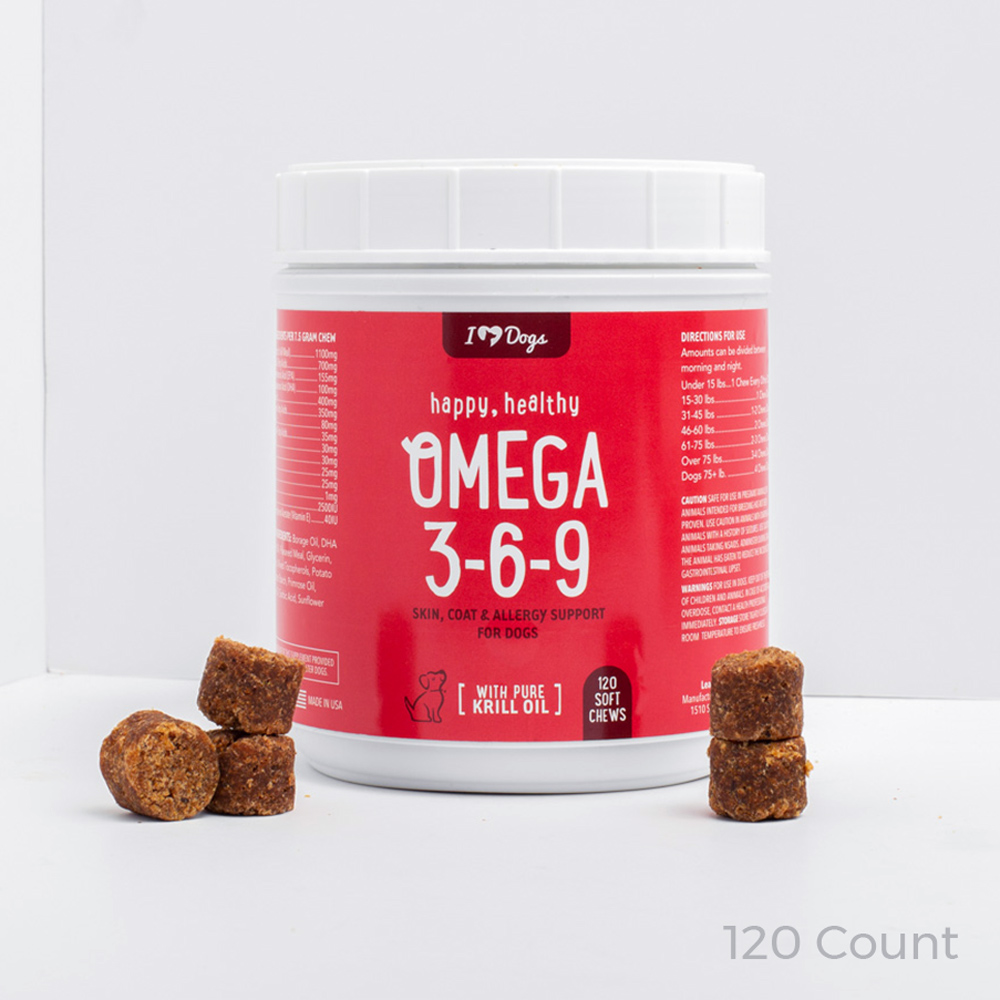The tell-tale signs of allergies usually become apparent before a dog’s senior years, but it is not unheard of for itching, redness, and inflamed skin to develop later in life. Those that already struggle with allergic skin may also begin to experience more flare-ups as their bodies weaken with age.
Related: Best Allergy Supplements To Give Your Pup
It’s never too late for allergies to appear – and luckily, it’s never too late to get them under control!

If your senior dog is suffering from dry, itchy, irritated skin due to allergies, the following 5 tips can help provide relief.
1. Feed The Right Diet
There is no perfect diet that is right for every dog, especially when food allergies are involved. Dogs can suddenly become allergic to any food ingredient at any time. The “usual suspects” include commonly used protein and carbohydrate sources such as chicken, beef, wheat, and corn.
To battle the epidemic of food allergies, many vets recommend homemade, raw or hypoallergenic diets that feature “novel” nutrient sources such as rabbit, duck, and venison for protein and carbohydrate sources like green peas and sweet potatoes.
Be wary of trying to identify and treat your dog’s food allergies on your own. A true diet trial can take months and switching from one food to another may make the problem worse. Work with your veterinarian to determine the best diet options for your senior dog’s individual needs.

2. Reduce Allergens With Bathing
Every time dogs step outside they are exposed to potential allergens. Bathing helps reduce microscopic particles that accumulate on the paws, skin, and coat. Cool water and specially formulated shampoos can help sooth itching and irritation, but be sure to use a pet-safe product designed for your dog’s specific skin problems and avoid over-bathing. Ask your veterinarian for a recommendation.
Wiping your dog’s paws with gentle, hypoallergenic towelettes after a trip outside is also helpful in between baths.

3. Keep Up With The Household Cleaning
Dust, airborne allergens, and mold spores accumulate in even the cleanest of homes. Frequent dusting and vacuuming can help reduce your dog’s exposure to household allergens and improve the health of the entire family. Remember to change your vacuum bag and air filters routinely and wash your pup’s bedding weekly.
You may also want to consider using a cool air humidifier to put moisture back in the air during arid weather. This can help relieve dry, itchy skin in humans and pets alike.

/* Add your own MailChimp form style overrides in your site stylesheet or in this style block.
We recommend moving this block and the preceding CSS link to the HEAD of your HTML file. */
Receive Our Free Newsletter Just for Senior Dog Owners!
Twice weekly tips to help your senior pup live longer & healthier. Plus get access to our private seniors only Facebook group!
(function($) {window.fnames = new Array(); window.ftypes = new Array();fnames[0]=’EMAIL’;ftypes[0]=’email’;fnames[1]=’FNAME’;ftypes[1]=’text’;fnames[2]=’LNAME’;ftypes[2]=’text’;}(jQuery));var $mcj = jQuery.noConflict(true);
4. Prevent Fleas
Did you know that a female flea can produce 600 offspring in a month? Or that an allergic dog can suffer for weeks from a single bite? Flea bite hypersensitivity and flea allergy dermatitis are among the most common skin conditions in pets.
While most dogs develop an allergy to flea bites before the age of five, it can show up or worsen at any life stage. The resulting itchiness, hairloss, and skin infections can take weeks to treat. It is far easier and more cost effective (not to mention better for your dog) to avoid flea infestations with a veterinary-approved preventative.

5. Promote Overall Skin Health With Omega Fatty Acids
As dogs age, their skin begins to lose its natural moisture, becoming more dry, sensitive, and prone to itching. The essential fatty acids, Omega-3, Omega-6, and Omega-9, benefit senior dogs’ skin by helping to keep their own natural oils at healthy levels. They also act as anti-inflammatories, reducing the intensity of allergies.
Happy, Healthy Omega 3-6-9 Select Grain Free Skin & Coat Chews are 100% gluten-free, grain-free, and soy-free, so they are safe for dogs with most food allergies. They support a soft, silky coat, minimize normal shedding, and maintain the skin’s normal moisture content with high quality essential fatty acids not bioavailable in pet food.
Happy, Healthy not only backs up this product with a money-back guarantee, they also provide 14 healthy meals to shelter dogs in need for every purchase of Omega 3-6-9 Select Soft Chews!
These statements have not been evaluated by the Food and Drug Administration. This product is not intended to diagnose, treat, cure, or prevent any disease. The information on this website is not intended to replace a one-on-one relationship with a qualified health care professional.

 Toledo, United States.
Toledo, United States.